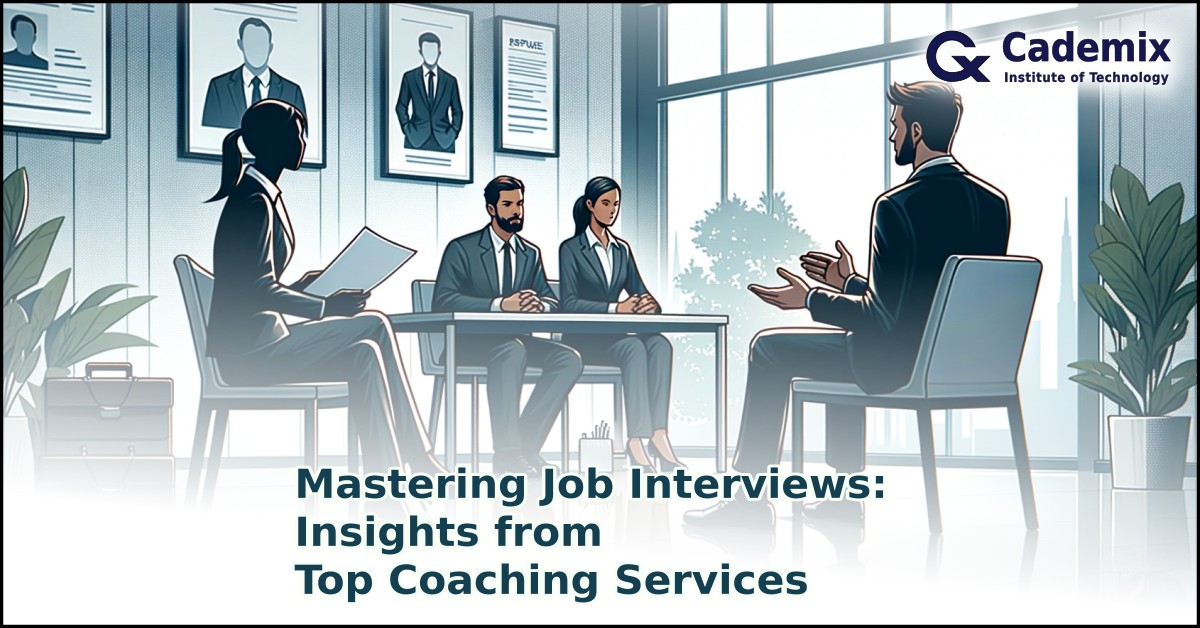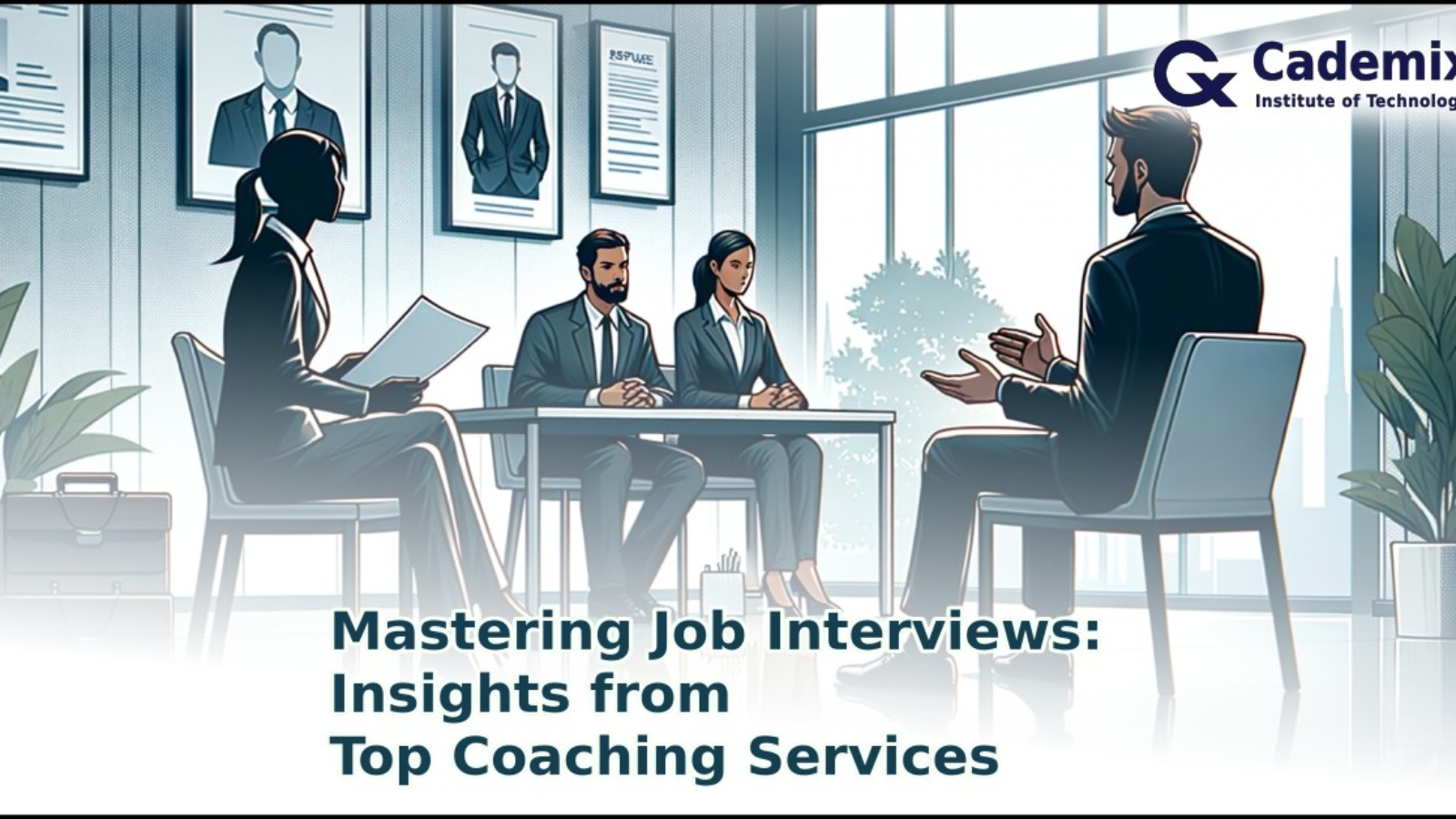This article delves into effective strategies for mastering job interviews, drawing insights from top interview coaching services. It offers guidance on preparing for interviews, understanding interviewer expectations, and techniques for presenting oneself confidently and competently.

Understanding the Interview Landscape
The Evolving Dynamics of Job Interviews
In today’s competitive job market, understanding the evolving dynamics of interviews is crucial. This subsection discusses how interviews have changed over time, including the shift towards behavioral and situational questions, and the increasing use of technology in the interview process. It highlights the importance of staying updated with current trends and expectations in interviewing.
Types of Interviews and What to Expect
There are various types of interviews, each with its own set of expectations and formats. This subsection explores common interview types, such as traditional face-to-face, panel, and remote interviews. It provides insights into what candidates can expect in each format, and how to tailor their preparation accordingly.
Mastering Interview Preparation
Research and Background Preparation
Effective interview preparation goes beyond reviewing common questions. This subsection emphasizes the importance of thorough research on the prospective company and role. It discusses strategies for understanding the company culture, industry position, and specific job requirements, and how this knowledge can be leveraged during the interview.
Mock Interviews and Practice
Practice is key to mastering interviews. This subsection delves into the benefits of participating in mock interviews, including reducing anxiety and improving response quality. It discusses how to seek opportunities for mock interviews, whether through career services, mentors, or professional coaches, and how to use the feedback from these sessions to refine interview techniques.
Communicating with Confidence
Verbal and Non-Verbal Communication Skills
Effective communication in interviews involves both what you say and how you say it. This subsection covers key aspects of verbal communication, such as clarity, conciseness, and tone, as well as non-verbal cues like body language and eye contact. It provides tips for developing these skills and using them to convey confidence and competence.
Handling Difficult Questions
Interviews often include challenging questions to test a candidate’s problem-solving and critical thinking skills. This subsection offers strategies for handling difficult questions, including how to stay composed, think on your feet, and structure responses in a way that showcases your abilities and fit for the role.
Strategies for Effective Communication
Articulating Your Strengths and Achievements
Successfully communicating your strengths and achievements is vital in an interview. This subsection explores how to effectively articulate your professional accomplishments and skills. It includes tips on using specific examples and the STAR (Situation, Task, Action, Result) technique to provide concise and impactful answers. The emphasis is on storytelling techniques that enable you to illustrate your achievements in a way that resonates with the interviewer.
Responding to Behavioral Questions
Behavioral questions are a common aspect of interviews, designed to assess how you’ve handled situations in the past. This subsection discusses strategies for responding to these questions. It includes guidance on how to reflect on past experiences, select the most relevant stories, and present them in a way that highlights your problem-solving abilities and other key competencies. It also emphasizes the importance of authenticity and honesty in your responses.
Navigating Post-Interview Etiquette
The Importance of Follow-Up Communications
The interview process doesn’t end when you leave the room. This subsection addresses the importance of post-interview follow-up. It provides detailed advice on how to craft effective follow-up emails, the ideal timing for these communications, and how to reinforce your interest in the position. It also discusses the nuances of following up without being overbearing, maintaining a balance between eagerness and professionalism.
Interpreting and Responding to Feedback
Receiving and appropriately responding to interview feedback is crucial for continuous improvement. This subsection delves into how to ask for, interpret, and respond to feedback, regardless of whether it’s positive or constructive. It covers the process of using feedback to refine interview skills for future opportunities and the importance of viewing each interview as a learning experience, contributing to your overall career journey.
Negotiating Your Employment Terms
Understanding Your Worth and Articulating Your Expectations
Negotiating employment terms, including salary, is a crucial step after a successful interview. This subsection guides on understanding your market worth and how to effectively articulate your salary expectations. It includes advice on researching industry standards, evaluating your skillset and experience, and how to approach salary discussions confidently. The focus is on achieving a balance between being assertive and flexible, ensuring your professional needs are met without compromising potential job opportunities.
Navigating Non-Salary Benefits and Perks
Beyond salary, job offers often include various benefits and perks. This subsection explores how to negotiate these aspects of your employment package. It discusses evaluating the complete offer, including health benefits, retirement plans, work-life balance considerations, and other perks. Tips on how to express your preferences and negotiate terms that align with your lifestyle and career goals are also provided, emphasizing the importance of understanding the full scope of what is being offered.
Continuous Professional Development
Learning from Each Interview Experience
Every interview, regardless of its outcome, is a learning opportunity. This subsection discusses the importance of reflecting on each interview experience to identify areas of strength and those needing improvement. It encourages a mindset of continuous learning, offering strategies for self-assessment and professional growth. The focus is on building on each experience to enhance your interviewing skills over time.
Seeking Opportunities for Skill Enhancement
In the dynamic landscape of the job market, upskilling is essential. This subsection covers how to identify skill gaps and seek opportunities for enhancement. It discusses various avenues for professional development, including online courses, workshops, mentorship programs, and industry networking events. The emphasis is on proactive skill development to not only improve interview performance but also to enhance overall career prospects.
Leveraging Digital Tools for Interview Success
Harnessing Online Platforms for Preparation
In an increasingly digital world, various online platforms offer resources for interview preparation. This subsection explores how to utilize these platforms effectively. It includes guidance on using online forums for practice questions, engaging in virtual mock interviews, and accessing a wealth of preparatory materials available on the internet. The focus is on leveraging digital tools to gain a competitive edge, familiarizing oneself with potential interview formats, and staying current with evolving interview trends.
Navigating Virtual Interviews and Remote Communication
Conclusion: Integrating Insights for Lasting Impact
Summarizing Key Strategies for Interview Mastery
The conclusion of the guide aims to integrate and summarize the key strategies discussed throughout. It highlights the importance of comprehensive preparation, effective communication, and the ability to adapt to different interview scenarios. The section reinforces the value of continuous learning and development, encouraging readers to apply these insights for lasting impact in their interview experiences and broader career journey.
Encouraging Proactive Career Advancement
In closing, the article encourages readers to take a proactive approach to their career advancement. It emphasizes that mastering job interviews is a continual process, involving reflection, adaptation, and enhancement of skills. The focus is on encouraging readers to remain engaged in their professional development, seeking out new learning opportunities, and staying adaptable to the ever-changing job market landscape.

